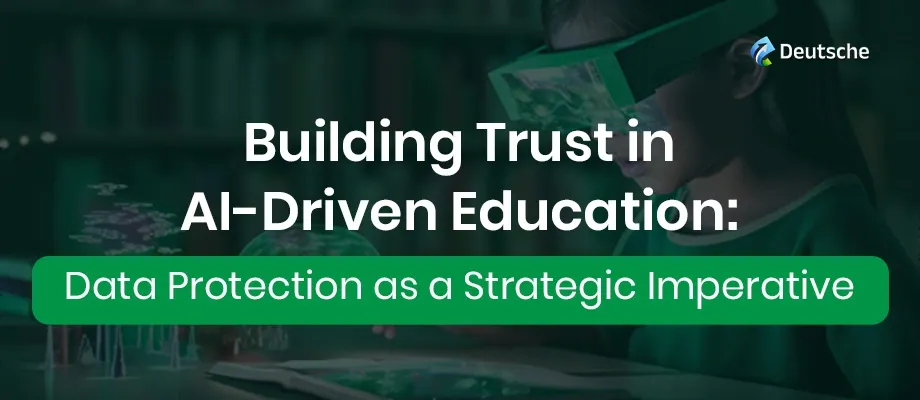In 2025, the transformative potential of Artificial Intelligence (AI) in education is undeniable. From personalized learning experiences to predictive analytics that can identify at-risk students, AI holds the promise of revolutionizing how we educate. However, this promise comes with a significant responsibility: safeguarding the data of students, particularly minors, and ensuring that AI systems operate ethically and transparently.
The enactment of India's Digital Personal Data Protection Act (DPDPA) in 2023 marked a pivotal moment in the country's data governance landscape. As we approach the finalization of the DPDPA Rules in September 2025, EdTech companies find themselves at a crossroads. The question is no longer whether to comply but how to lead in a manner that builds trust, fosters innovation, and upholds the highest ethical standards.
The Strategic Imperative: Beyond Compliance
The DPDPA is not merely a regulatory hurdle; it is a strategic catalyst. The Draft Digital Personal Data Protection Rules, 2025, released earlier this year, provide detailed operational guidance for compliance. These rules emphasize the necessity of obtaining informed, specific, and unambiguous consent from data subjects, especially when processing children's data. For EdTech companies, this means that practices such as AI-driven personalized learning and analytics must be carefully aligned with the principles of data minimization and purpose limitation outlined in the DPDPA.
Moreover, the introduction of Consent Managers—intermediaries responsible for managing user consents—adds a layer of complexity and opportunity. These entities will facilitate the process of obtaining, managing, and withdrawing consent, ensuring that data processing activities are transparent and accountable. EdTech companies must consider how to integrate Consent Managers into their data governance frameworks to ensure compliance and maintain user trust.
The EdTech Conundrum: Innovation vs. Protection
The tension between innovation and protection is particularly pronounced in the EdTech sector. AI technologies offer unprecedented opportunities to enhance learning outcomes, but they also pose risks related to data privacy and algorithmic bias. The DPDPA's stringent requirements for parental consent and the prohibition of profiling children present challenges for EdTech companies that rely on data-driven insights to personalize learning experiences.
However, these challenges also present an opportunity to lead in ethical AI development. By embedding privacy and ethical considerations into the design and deployment of AI systems, EdTech companies can not only comply with regulatory requirements but also differentiate themselves in a competitive market. This approach requires a commitment to transparency, accountability, and continuous improvement in AI practices.
A Framework for Ethical Leadership
To navigate the complexities of data protection and ethical AI in education, we propose a proactive, three-pillar framework for EdTech companies:
Pillar 1: Ethics by Design
Integrate privacy and ethical considerations into the product development lifecycle from the outset. This involves conducting Data Protection Impact Assessments (DPIAs) for new projects, implementing data minimization principles, and ensuring that AI systems are designed to be explainable and fair. By adopting a "privacy by design" approach, EdTech companies can build systems that respect user rights and foster trust.
Pillar 2: Radical Transparency with Parents
Go beyond legal requirements by providing parents with intuitive dashboards that clearly explain what data is collected, how it is used, and the benefits it brings to their child's learning. This transparency not only complies with the DPDPA's consent requirements but also empowers parents to make informed decisions about their children's data.
Pillar 3: Innovation within Guardrails
While the DPDPA imposes restrictions on certain data processing activities, it also provides avenues for innovation. The draft rules include provisions for processing publicly available data and conducting research, provided that these activities adhere to prescribed standards. EdTech companies can explore these avenues to continue developing AI-driven solutions that enhance educational outcomes while remaining compliant with data protection regulations.
The Rise of the Trustworthy Titan
The future of EdTech belongs to companies that prioritize trust as much as technology. As the DPDPA Rules are finalized and enforcement begins, those who have proactively aligned their operations with the principles of data protection and ethical AI will emerge as leaders in the sector. These "Trustworthy Titans" will not only comply with regulations but will set the standard for responsible innovation in education.
